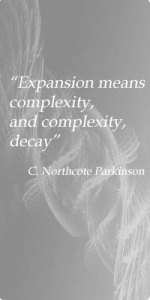On Slush Piles, MFA Programs, and Becoming Who You Are
Sunday, August 24th, 2008One of my students sent me a link to this Q & A by Salon advice columnist Cary Tennis. The question comes from a writer who got writer’s block after reading the slush pile at a publishing company. The writer asks:
How do you believe in your own writing? I don’t mean after it’s finished, but while you’re writing it? Is there a way to work with the imaginary reader instead of fighting with him/her?
Tennis takes the opportunity, in his answer, to wax rhapsodic about releasing yourself from your own judgment, and while he has certainly been taken to task for completely failing to answer his readers’ questions in the past, he has something valid to offer here, I think. You have to enjoy the exuberance of his response, at least.
We cannot judge harshly without also living in fear of being judged. And it is that creeping fear of being judged ourselves that can prevent us from writing fluidly and with ease and courage. So I say step out there and be really, really bad if you want. Who cares? Step out there and write the worst prose imaginable! So what? There’s no law. Do it with gusto. Write the worst possible prose. Write poems that are so bad you can smell them. Do it. Look around. Have you been arrested? Have you been fired? Are you being held up to public ridicule? No. It’s safe. It’s safe to write whatever you want. And you never know. Some of the most awful stuff might be the best. You don’t know. You can’t judge your own work or control how others respond to it.
I have to disagree slightly with the last bit, though. It certainly is hard to see your own work with any degree of objectivity, but with enough careful attention to craft I believe you can tell, in general terms, if your writing is hitting the mark or not. You’ll still need some trusted external readers to be sure, but your own responses will be truer and more reliable. That’s been my experience anyway, and it’s something I try and instill in my students. Through workshopping, writing, and reading great work, you are effectively educating your own internal imaginary reader, to phrase it in the letter writer’s own terms. Turning him or her into a useful friend, instead of a foe. There’s nothing more enabling than that. It’s practical and learnable and it works.
Which is not to say that there isn’t room, sometimes, for a more esoteric response. Looking through some other Cary Tennis columns for this blog post, I came across this one, from 2007, in which an MFA student from “a certain rather prestigious MFA program” asks: what am I doing here?
Cary’s response, in which he confesses that he was once an MFA candidate too, is rather brilliant:

